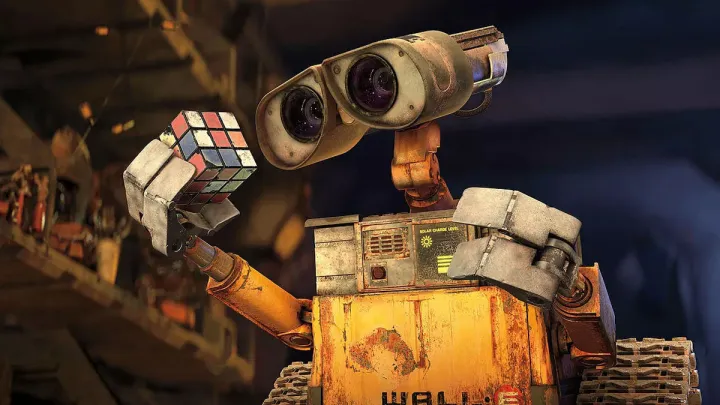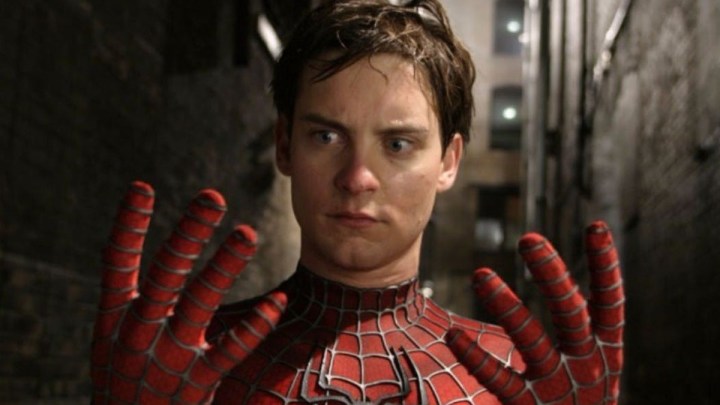It’s not false to say that Oscar winners are popular with the moviegoing public. Victors are highlighted in the ceremony, given 45 seconds (or more) to give a speech, and numerous press outlets are devoted to covering their win. Even after the Oscar show, coverage is devoted to them as winners, with numerous retrospectives, lists, and debates centering around their successful accomplishments.
But what about the people who don’t win? What happens to them? With the 2023 Oscars live stream and ceremony airing tonight, it’s time to cast a spotlight on those unlucky few who didn’t take home the golden statuette. The phrase “Oscar loser” sounds harsh, but for these people on this list, it just highlights past injustices. All of the actors, actresses, directors, composers, and sound engineers should’ve won at least one Oscar by now, and this list spotlights all the great work they have done over the years.
8. Wes Anderson (7 nominations)

The Academy has a love/hate relationship. On the one hand, they’ve only nominated the director once in the field he’s best known for, directing. Yet he’s been nominated seven times in the last two decades in a variety of categories. After getting recognized for his original screenplay for 2001’s The Royal Tenenbaums, Anderson was nominated for Best Animated Feature for his stop-motion 2009 movie, The Fantastic Mr. Fox. Another Best Original Screenplay nomination came for 2012’s Moonrise Kingdom before the Academy fully embraced him in 2014 for The Grand Budapest Hotel.
For that Ralph Fiennes comedy, Anderson received three nominations: Best Original Screenplay (of course), Best Picture, and (finally!) Best Director. He lost all of the nominations and has gone back to being recognized for his animated work with his second nod in the Best Animated Feature category for 2018’s Isle of Dogs.
7. Richard Burton (7 nominations)

Like his pal and sometimes co-star Peter O’Toole, Richard Burton was always an Oscar groomsman and never a groom. The Welsh actor nabbed a Best Supporting Actor nomination for his breakthrough role in 1952’s My Cousin Rachel. He quickly nabbed another nomination the following year, this time for Best Actor, in the religious epic The Robe.
After spending more than a decade toiling on the stage, Burton dominated the 1960s with three consecutive nominations from 1964 to 1966 for Becket, The Spy Who Came in From The Cold, and Who’s Afraid of Virginia Woolf? One more Best Actor nomination for Anne of the Thousand Days in 1969 closed out the decade on a high note. There would be just one more nomination, for the stage play adaptation of Equus, in Burton’s final decade as an actor.
6. Glenn Close (8 nominations)

It’s hard to believe Glenn Close has never won an Oscar. It’s harder, and sadder, to believe that she is more known now as an Oscar loser than a respected actress of stage and screen. Close received her first Oscar nomination for her film debut in 1982’s The World According to Garp. After two more successive nominations in the Best Supporting Actress category for 1983’s The Big Chill and 1984’s The Natural, she then graduated to the Lead category with nods for 1987’s Fatal Attraction and 1988’s Dangerous Liaisons.
She should’ve won for the latter if only to give an epic Oscar speech, but she came up empty and had to wait 23 years for her next nomination for 2011’s Albert Nobbs. After another seven years, she had her best shot at a win with 2018’s The Wife but was the victim of one of Oscar’s biggest upsets when Olivia Colman won for The Favourite. Two years later, she received a pity nomination for her supporting work in the awful 2020’s Hillbilly Elegy, but even she seemed to be tired of the whole thing and appeared grateful to lose to a worthy victor, Youn Yuh-jung for Minari.
5. Peter O’Toole (8 nominations)
Peter O’Toole was one of the finest actors of his generation and was one of the rare thespians to receive nominations in four different decades. In the 1960s, he received Best Actor nominations for his impressive work in 1962’s Lawrence of Arabia, 1964’s Becket (with fellow perennial Oscar loser Richard Burton), 1968’s The Lion in Winter, and the 1969 musical remake of Goodbye, Mr. Chips. The 1970s saw only one nomination for the 1972 satire The Ruling Class, but he rightly lost to Marlon Brando’s iconic work in The Godfather that year.
The 1980s had O’Toole stage a brief comeback with nominated work in 1980’s The Stunt Man and 1982’s My Favorite Year before a nearly quarter of a century passed until he was nominated again. After receiving an Honorary Oscar in 2002, O’Toole managed one more Best Actor nod for the sentimental drama Venus in 2006.
4. Bradley Cooper (9 nominations)

It’s somewhat surprising to see Bradley Cooper on this list for a number of reasons. The first is it’s hard to believe the successful Cooper is a “loser” and the second is that while still at the height of his career, he’s already accumulated an impressive number of nominations. That’s largely due to his considerable talents as an actor, writer, and producer. He received his first nomination as Best Actor for 2012’s Silver Linings Playbook and his second nomination, for Best Supporting Actor, a year later for American Hustle. He then had a huge hit with 2014’s American Sniper, which netted him a nod for Best Actor and Best Picture.
He received multiple nominations for Best Actor, Best Picture, and Best Adapted Screenplay for the 2018 remake of A Star is Born, and many expected him to be nominated for Best Director as well. He then received two more nominations for Best Picture: for 2018’s Joker and, perhaps most surprisingly, for 2021’s Nightmare Alley remake by Guillermo Del Toro, which flopped at the box office.
3. Paul Thomas Anderson (11 nominations)

As one of the most respected directors of his generation, you’d think Paul Thomas Anderson would’ve won something by now. The Academy has always loved him, nominating him for his original screenplays for his second (1997’s Boogie Nights) and third (1999’s Magnolia) films. After ignoring the 2002 Adam Sandler dark comedy-romance Punch-Drunk Love, they embraced 2007’s There Will Be Blood, which garnered him nominations for Best Picture, Best Director, and Best Adapted Screenplay.
Although snubbed for Best Director for 2014’s Inherent Vice, he received a nomination for Best Adapted Screenplay. For 2017’s masterful Phantom Thread, he received recognition for Best Director and Best Picture. Just last year, the Academy again spread the love, nominating his work for Best Director, Best Picture, and Best Original Screenplay for the Southern California coming-of-age tale Licorice Pizza.
2. Thomas Newman (15 nominations)

It’s not just movie stars and directors that get snubbed; it’s people behind the camera that are also ignored by the Academy. Thomas Newman, a prolific film composer, comes from a family of Oscar winners, as his father Alfred Newman and his cousin Randy have both received Academy Awards. Thomas hasn’t been so lucky, striking out in the Best Original Score category for the following films: The Shawshank Redemption, Little Women, Unstrung Heroes, American Beauty, Road to Perdition, Finding Nemo, Lemony Snicket’s A Series of Unfortunate Events, The Good German, WALL-E, Skyfall, Saving Mr. Banks, Bridge of Spies, Passengers, and 1917.
Newman also scored a nomination in the Best Song category for the WALL-E ballad Down to Earth, which he wrote with pop singer Peter Gabriel. They both lost to Slumdog Millionaire‘s catchy song Jai Ho by A.R. Rahman.
1. Greg P. Russell (17 nominations)

Chances are you’ve never heard of Greg P. Russell. That’s OK, because the sound engineer works behind the scenes in a low-profile category: sound. Over the years, the Academy has devoted one or two categories to the craft, and Russell has been nominated for 17 Oscars. He was nominated for Best Sound in 1989 for Black Rain, 1996 for The Rock, 1997 for Con Air, 1998 for both The Mask of Zorro and Armageddon, 2000 for The Patriot, 2001 for Michael Bay’s epic Pearl Harbor, and 2002 for Spider-Man.
He was nominated for Best Sound Mixing in 2004 Spider-Man 2, 2005 for Memoirs of a Geisha, 2006 for Apocalypto, 2007 for Transformers, 2009 for the sequel Transformers: Revenge of the Fallen, 2010 for the Angelina Jolie action movie Salt, 2011 for Transformers: Dark of the Moon, 2012 for Skyfall, and 2016 for 13 Hours. The Academy rescinded the latter nomination as Russell had violated Oscar campaigning rules. I’m still counting it though.
Editors' Recommendations
- 2025 Oscars: 5 movies to expect at next year’s ceremony
- Oscars 2024: Who is performing at the Academy Awards?
- 10 biggest Oscar snubs ever, ranked
- This excellent 2023 movie received no Oscar nominations. Here’s why you should watch it anyway
- 10 most popular movies of all time on Letterboxd, ranked




